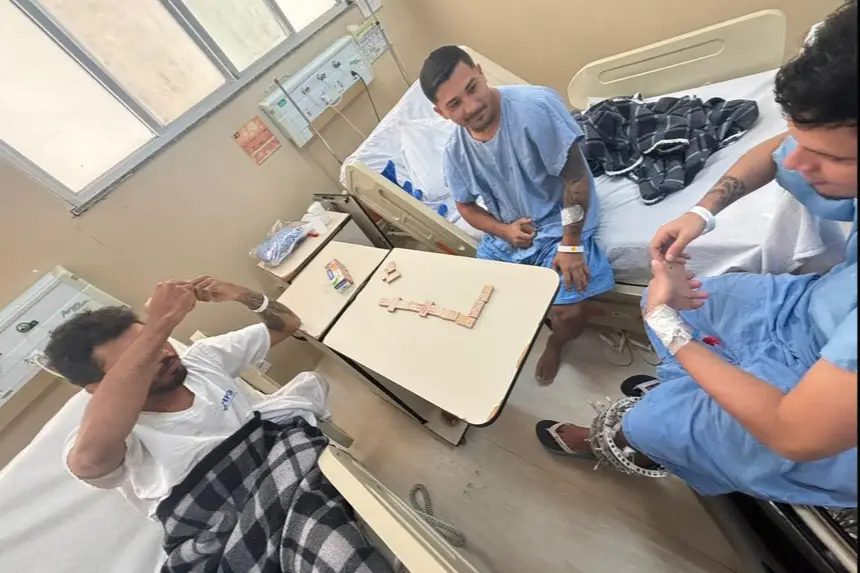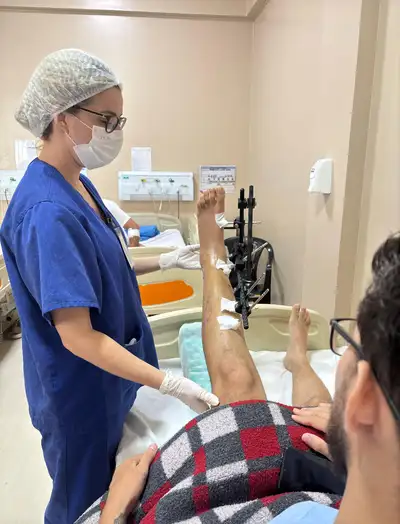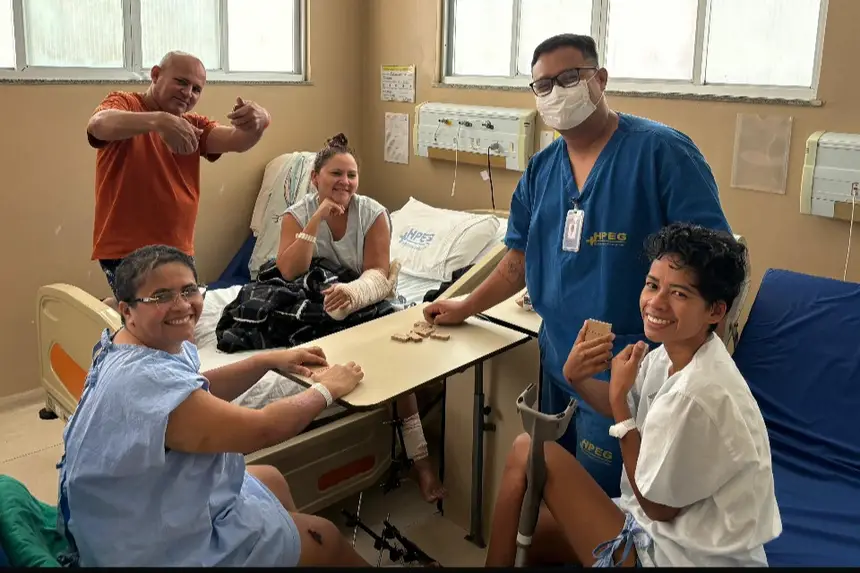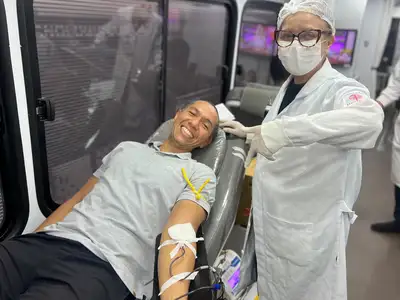Galileu Hospital invests in physiotherapy for rehabilitation and quality of life of patients
With continuous care and personalized strategies, the service works to prevent sequelae and ensure a safe return to daily activities

A reference in high-complexity orthopedics, the Galileu State Public Hospital (HPEG), in Greater Belém, has physiotherapy as one of the pillars of patient care. The service follows the user from admission to hospital discharge, working on the prevention of complications, functional recovery, and safe return to daily activities.
"Physiotherapy is integrated into the multiprofessional team and aims to stabilize the patient and accelerate their rehabilitation. More than restoring movements, we seek to ensure a return to social life and work with autonomy and quality of life," says physiotherapist Felix Furtado, who works at the unit.

From January to June 2025, 17,255 physiotherapy sessions were conducted, mainly covering cases of fractures of the upper and lower limbs, such as tibia fractures, which require planning and a broad approach to ensure effective and lasting results.
The impact of this care goes beyond physical recovery. Each service is planned in a personalized way, respecting the history and context of each user. "The patient is much more than a diagnosis. They bring with them a story and a social and emotional context. Our job is to see this person as a whole and plan an individualized treatment so that each step contributes to their discharge," emphasizes Felix Furtado.
Resources and practical approach
In the hospital routine, physiotherapy uses simple but impactful strategies for recovery. Exercises performed in bed, frequent position changes, and encouragement of early mobilization are incorporated from the first days of hospitalization, favoring circulation, preventing muscle strength loss, and improving respiratory function.
"Whether with bed exercises, postural adjustments, or encouragement of early mobilization, our goal is to keep the body active and reduce complications, such as thrombosis and respiratory changes. Many people believe that physiotherapy starts only after discharge, but in fact, it begins right at the bedside and directly influences the treatment outcome," reinforces Felix Furtado.

Physiotherapy also uses manual resources and free or resisted exercises to recover strength and range of motion. The unit also has an outdoor gym, which makes rehabilitation more humanized by providing contact with the external environment and promoting socialization, benefiting physical and mental health.
"Physiotherapy plays a decisive role within the hospital because it accelerates recovery and prevents complications. Keeping the patient active, within their possibilities, from the first days of hospitalization makes all the difference for the success of the treatment and for a safe return to routine," adds the physiotherapist.
Remarkable case
Among the many stories of overcoming experienced at Galileu Hospital, one, followed by physiotherapist Felix Furtado, stands out for the strength and determination of the patient. It is about a young man who spent more than 60 days hospitalized after a serious car accident, which resulted in an exposed fracture and severe functional loss.
"He felt intense pain and had compromised mobility. With the integrated work of the team and an adapted physiotherapy plan, he achieved progressive goals and, in a few days, was able to stand up and then walk independently," reports Felix.
This evolution marked not only physical recovery but also a reconnection with the patient's own self-esteem. "Seeing his hope reborn and the confidence to resume daily life is as valuable as recovering movements. That is what gives meaning to our work," concludes the physiotherapist.
Service:
The Galileu State Public Hospital, managed by the Institute of Social and Environmental Health of the Amazon (ISSAA) in partnership with the State Department of Public Health (Sespa), has 104 inpatient beds and offers specialized services, such as bone reconstruction and elongation, trachea surgeries, and urological surgeries, including benign prostatic hyperplasia, renal exclusion, and prostate biopsy screening.










